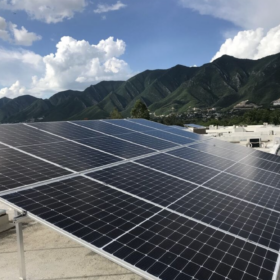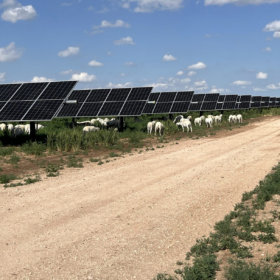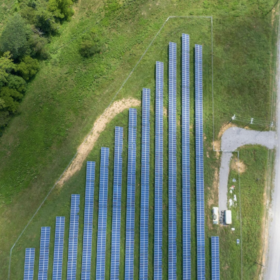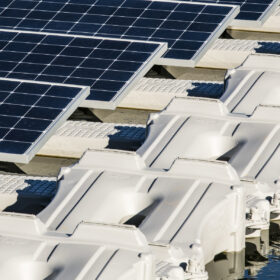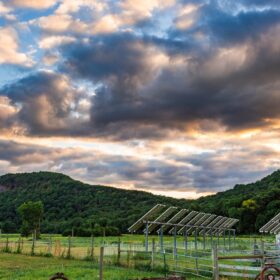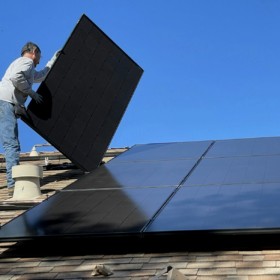Robotics driving US solar recycling capacity expansion
Solar recycler OnePlanet will draw on vision-guided robots and automation to scale its River City facility and recover more, purer valuable materials from spent panels.
US government renames National Renewable Energy Laboratory
The US Department of Energy (DoE) has renamed the National Renewable Energy Laboratory (NREL) in Colorado as the National Laboratory of the Rockies, a change it says aligns the institute’s mandate with the Trump administration’s applied energy priorities.
US study outlines gains and risks in agrivoltaic solar development
A new National Renewable Energy Laboratory (NREL) report says Massachusetts’ solar-on-farmland policy framework offers lessons for developers navigating both opportunity and regulatory complexity.
Pollinator-friendly solar gains ground in renewable credit markets
As biodiversity metrics enter renewable energy credit schemes, developers and corporate buyers are turning to certified pollinator-friendly solar sites to enhance project value and meet environmental, social and governance (ESG) goals.
US studies show 2050 cost forecasts for solar, wind and batteries far too high
For years, US solar insiders have watched cost forecasts miss the mark. Now, new research confirms what industry trends already made clear by 2023: most 2050 projections for solar, wind, and batteries weren’t even in the same ballpark.
Third Pillar obtains rights for 500 MW of floating solar in Texas
Third Pillar has secured exclusive access to develop a potential 500 MW of floating solar in water reservoirs in Texas.
Agrivoltaic shading, full-sun fields gives farmers the power to pivot
Research conducted at the oldest agrivoltaic research site in the United States found year-to-year weather variability impacts agrivoltaic crop production, emphasizing the importance in conducting studies across multiple years.
US renewable energy rollout slows amid local opposition, zoning laws
Residents and local restrictions are delaying and blocking renewable energy projects in the United States at an accelerated rate, according to a study from Columbia University.
What homeowners need to know as US solar panel tax credits end
Experts advise people with serious interest in home solar to act quickly and consider their choices carefully to avoid any headaches.
US solar grazing undergoing rapid growth
The scale of livestock grazing in agrivoltaic installations is much larger than previously understood, according to the first solar grazing census by the US National Renewable Energy Laboratory (NREL) and the American Solar Grazing Association.
